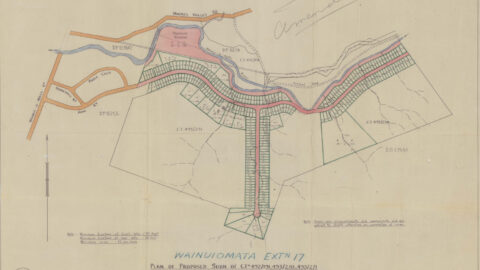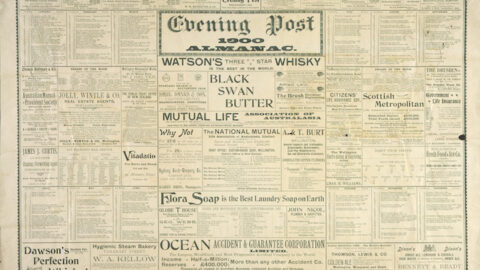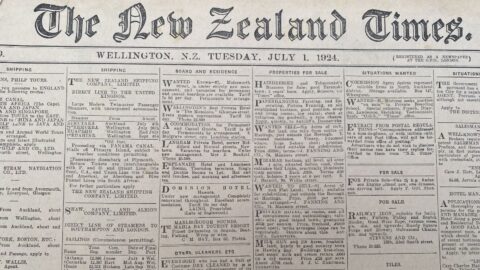The Accident to the Wainui-o-mata Dam
At last night’s meeting of the Public Works Committee of the City Council, Mr G. H. Bayliss, the contractor for the dam at Wainui-o-mata, was in attendance in support of a written invitation to Councillors to visit the works and inspect the damage that had been done by the recent floods. With regard to the accident, the City Engineer made a report as to the nature of the damage and said it would now be impossible for Mr Bayliss to complete the contract without a further extension of time. Councillor Newman enquired the extent of the damage as represented in money. Mr Bayliss could not form an accurate idea until he had made proper calculations, but added that the damage was very considerable.
Councillor Danks asked the contractor if he considered the present means of carrying off storm water were sufficient. The Mayor thought this was rather a question to be asked of an engineering expert, not of a contractor. Councillor Danks then asked what made the “backing” of the dam give way. Mr Bayliss replied, “The immense body of storm water, which was not able to get away through the existing means. The body of water was too great, and it went over the main wall.” Councillor Newman enquired of the City Engineer if this overflow was entirely due to the fact that the present water-race and tunnel for by-wash were insufficient. The City Engineer said the race and by-wash were not intended to take flood water at all, the intention being that the overflow from the river should go over the dam.
Councillor Newman asked if the Engineer made provision for a flood of this kind when specifying the arrangements for the construction of the dam. The Engineer replied that when the dam was commenced the contractor had a flume, and no one had the slightest conception that such a flood as this would have occurred. The flume had been blocked up owing to the advancement of the works. Councillor Wilson was unable to understand why the contractor did not then take additional precautions against such a flood.
Councillor Richardson interposed that the committee were not there to discuss the manner in which the contractor was setting about his work. The Mayor held that the question was one which did not seriously concern the Council at all. The contractor would have to bear that loss, and the worst that could happen to the Council would be to have to grant a further extension of time. He hoped the committee would accept the contractor’s invitation to visit the works, because quite independently of this specific occasion, it was the paramount duty of every Councillor during the carrying out of a work of such magnitude to visit the works periodically. For his part, he had visited the works frequently in the past, not as a matter of pleasure, but simply as a matter of duty. (Councillor A. W. Brown – “Any trout?” and laughter.)
Councillor Wilson submitted that this question did concern the Council, seeing that a further extension of time would have to be asked for, and these repeatedly-granted extensions placed other contractors in a very unfair position. (Hear, hear.) The Mayor wished it to be understood that he was not speaking in favour of the contractor. Mr Bayliss would lose about £250 by this occurrence, and it was not of his own seeking that he was about to apply for an extension. Councillor Thompson agreed that it would be a wise thing to visit the works as requested. He had never gone on trout-fishing excursions to Wainui-o-mata (laughter), but at the same time, whenever he went he managed to combine pleasure with business.
It was agreed that the Committee should visit the works on Wednesday, leaving the Council Chamber at a quarter to 9 a.m. Councillor Newman, before the subject was dropped, said there was a moral to this incident, and that was that the Council should steadily set its face against granting extensions to contractors in future. Had this rule been enforced in the present instance, the works would have been completed long ago, and the accident referred to would never have occurred. (Hear, hear.) Councillor Danks supplemented this by expressing his belief that there was nothing to prevent the dam being constructed during the past summer – or even two years ago – instead of during the winter months.
Tags: Fishing Floods Newspaper Tunnels Water Race Waterworks



